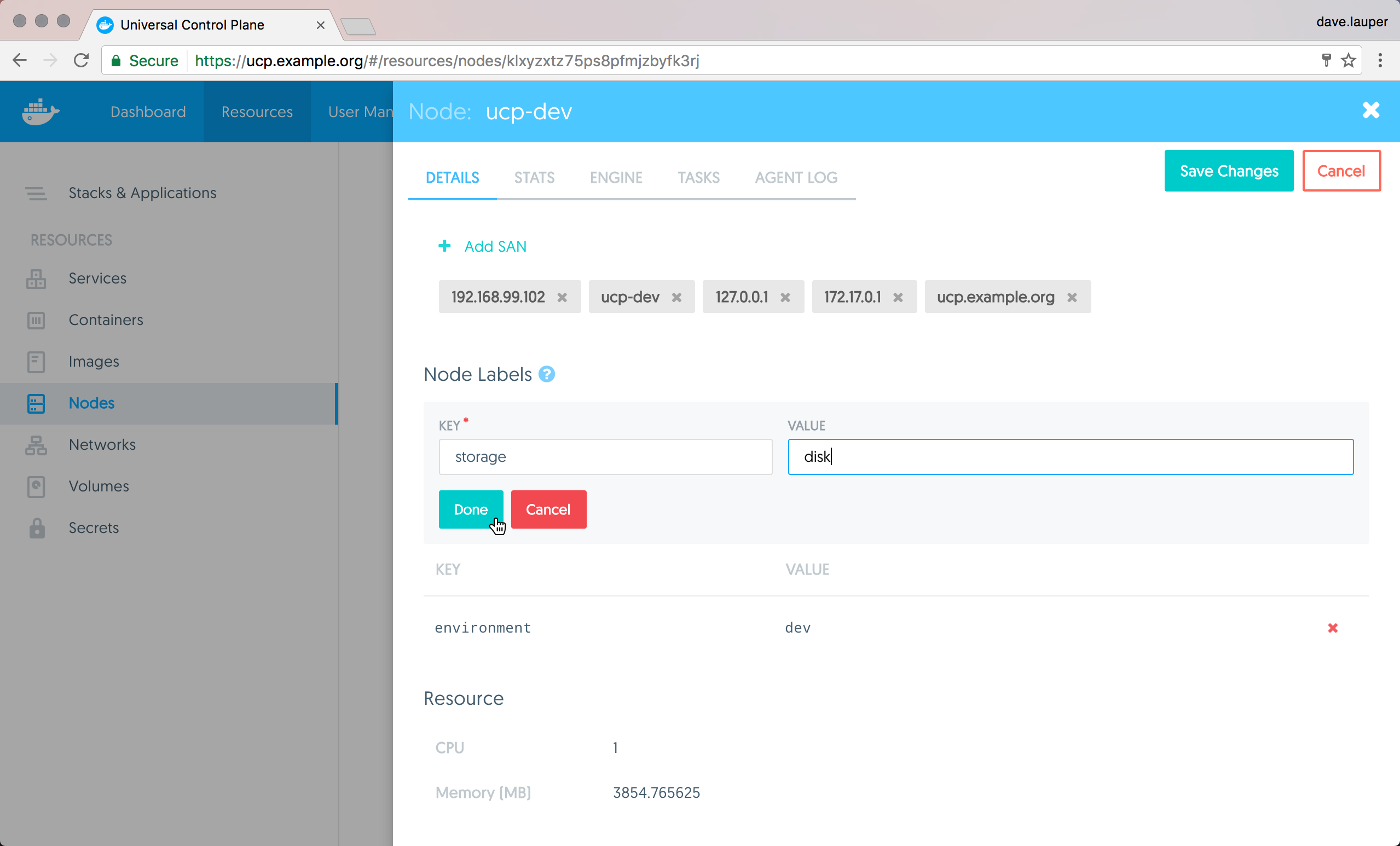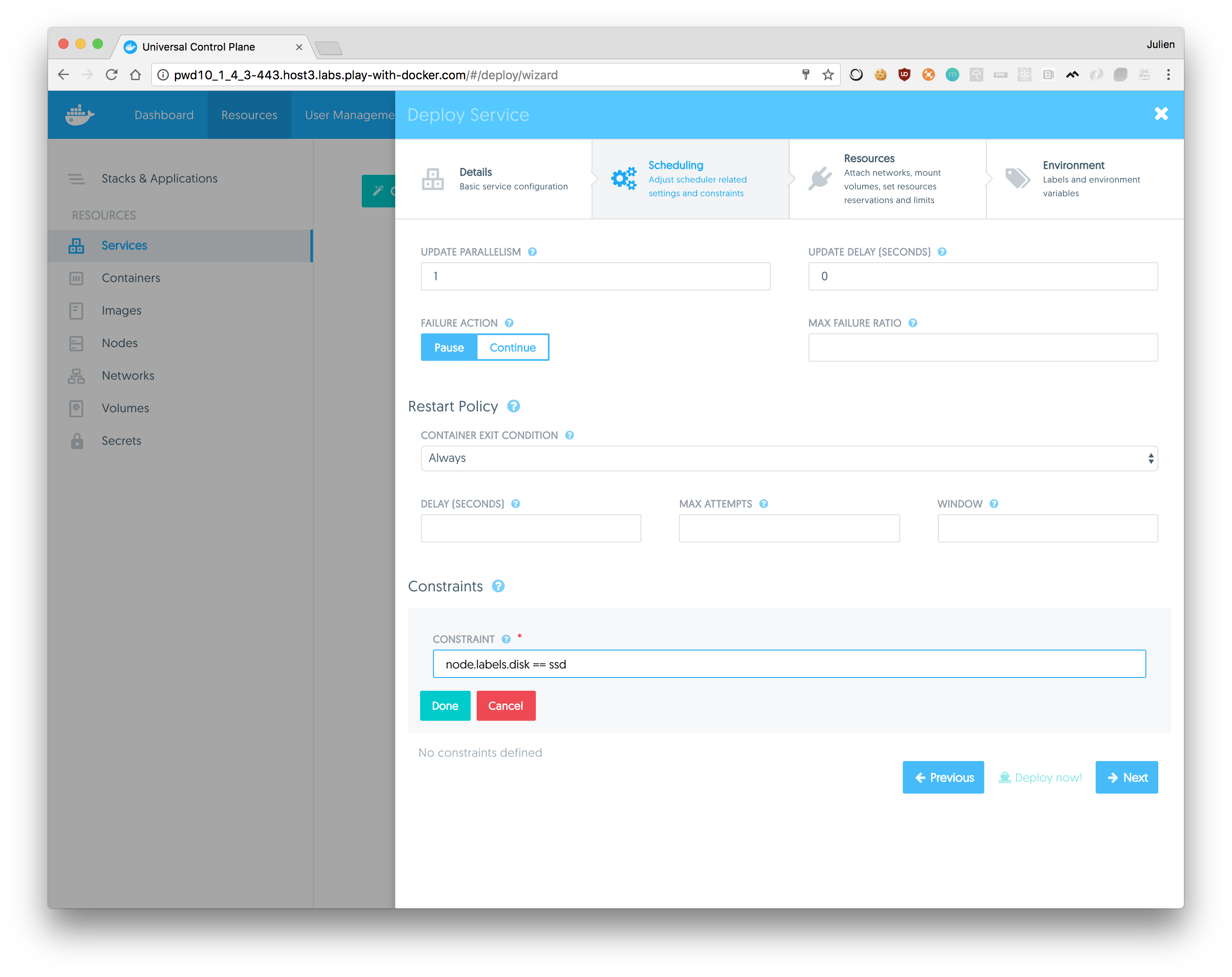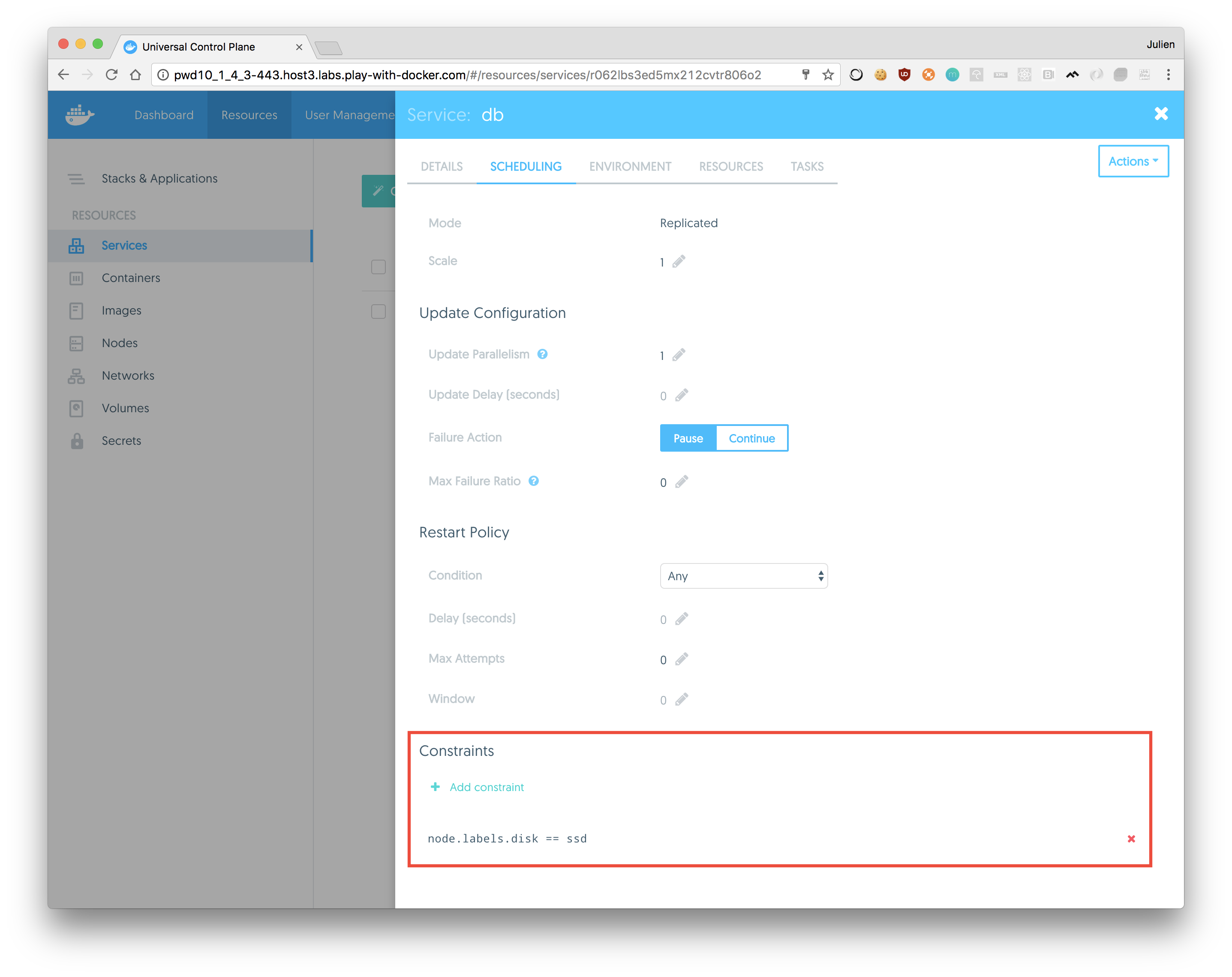Add labels to cluster nodes
Estimated reading time: 1 minuteAfter deploying UCP you can add labels to your nodes. Labels are metadata that you can use to organize nodes. You can also use these labels as deployment constraints for your services.
When deploying a service, you can specify constraints, so that the service only gets scheduled on a node that has a label that fulfills all the constraints you specify.
As an example, you can apply labels based on their role in the development lifecycle, or the hardware resources they have.
Apply labels to a node
Log in with administrator credentials in the UCP web UI, navigate to the Nodes page, and choose the node you want to apply labels to.
Click the Add label button, and add one or more labels to the node.

Once you’re done, click Save Changes.
You can also do this from the CLI by running:
docker node update --label-add <key>=<value> <node-id>
Add constraint to a service
When deploying a service, you can specify constraints, so that the service only gets scheduled on a node that has a label that fulfills all the constraints you specify.
In this example, when users deploy a service they can add constraints for the service to be scheduled on nodes that have an SSD storage.
You can add deployment constraints to your docker-stack.yml file or when you are creating a stack:

Or you can apply them when you are creating a service.

You can check if a service have deployment constraints, navigate to the Services page, and choose the service your want to check. Once you’re done, click Scheduling.

From here, you can add or remove deployment constraint too.
